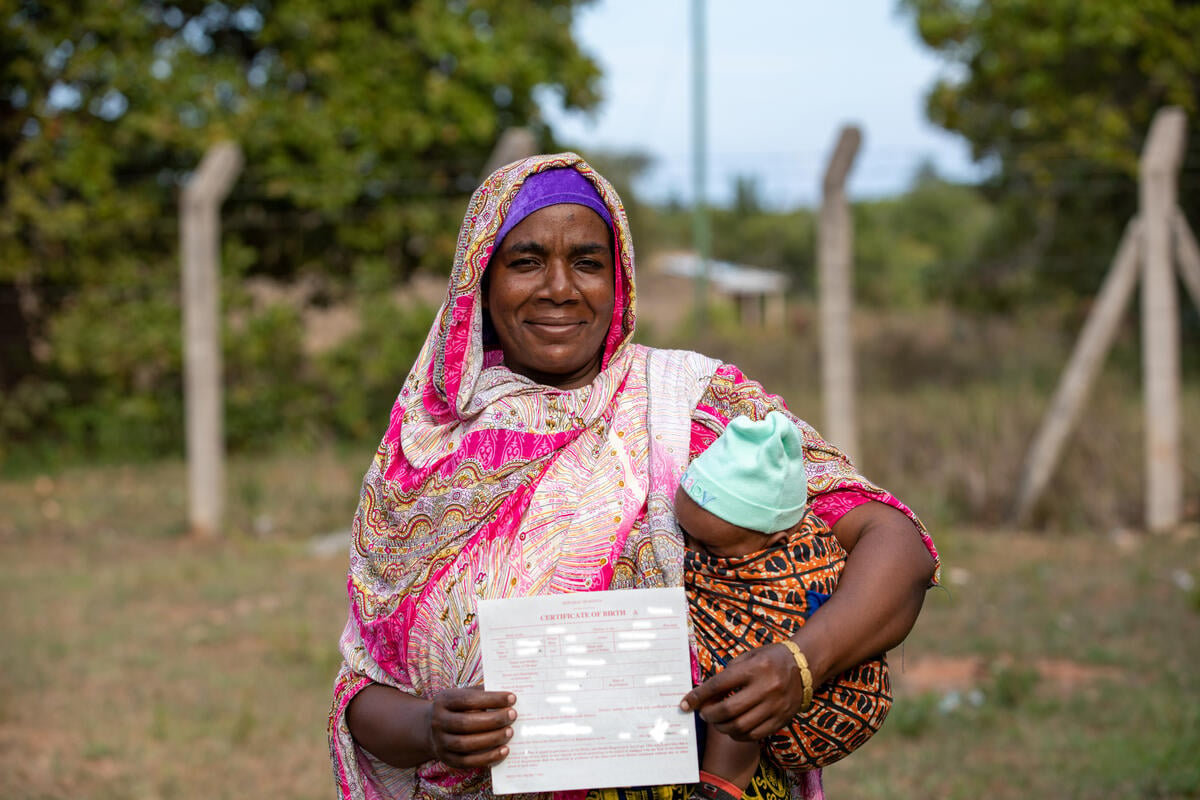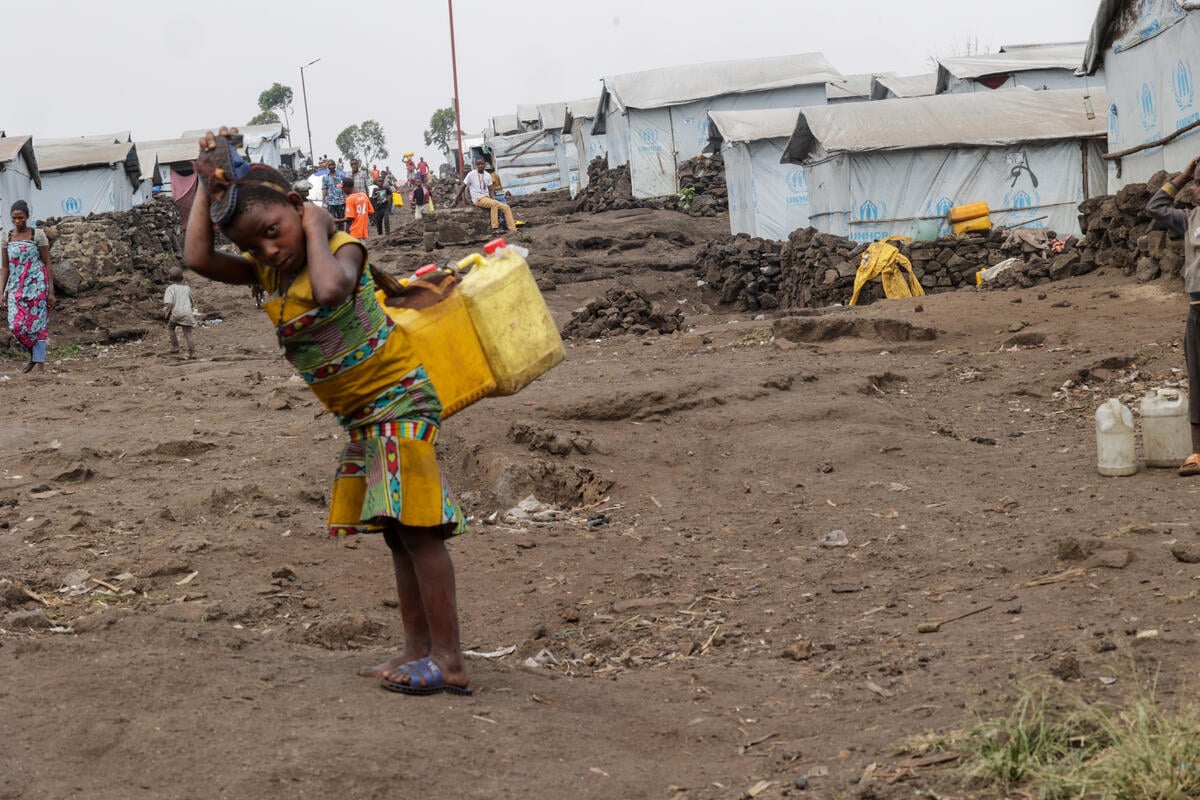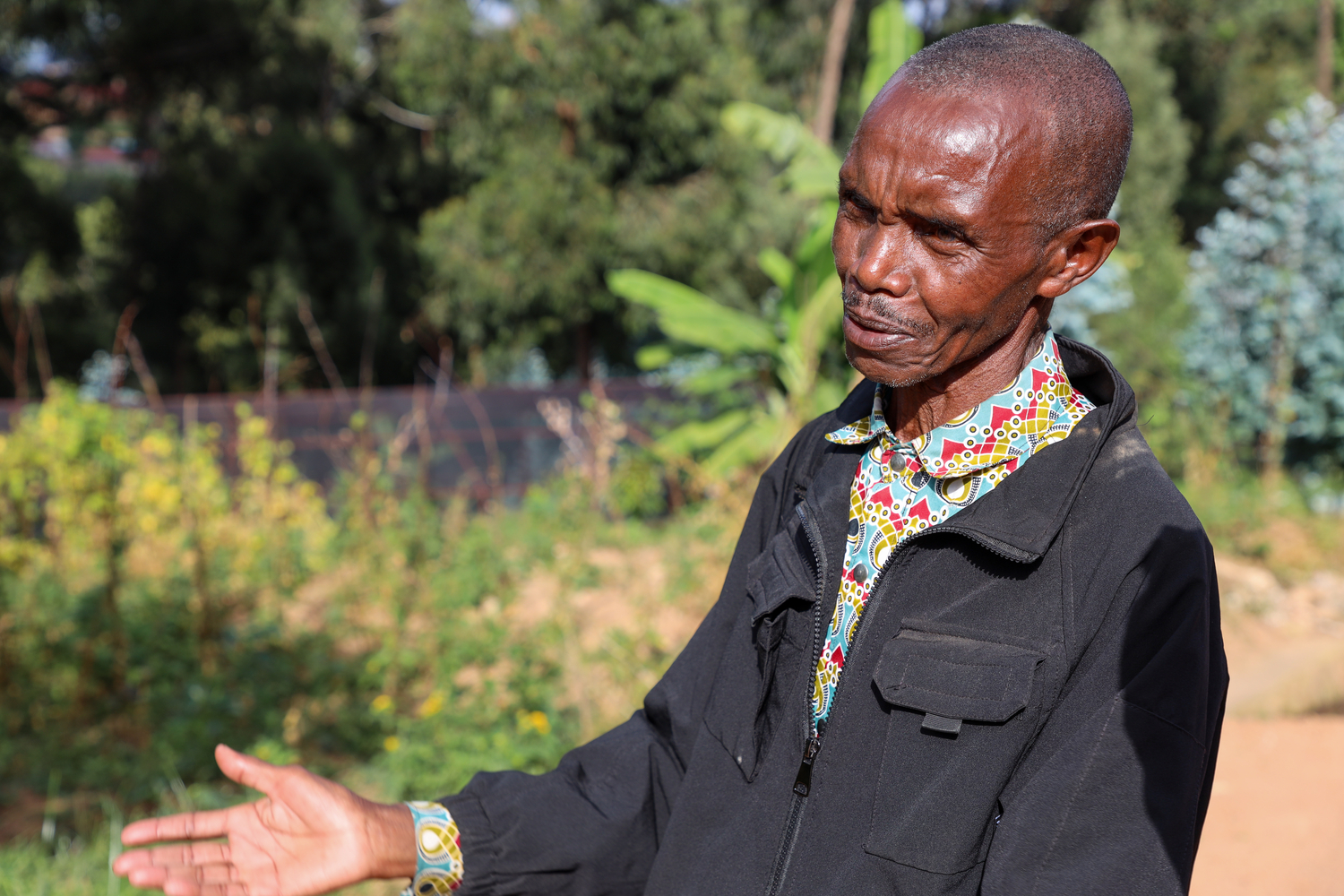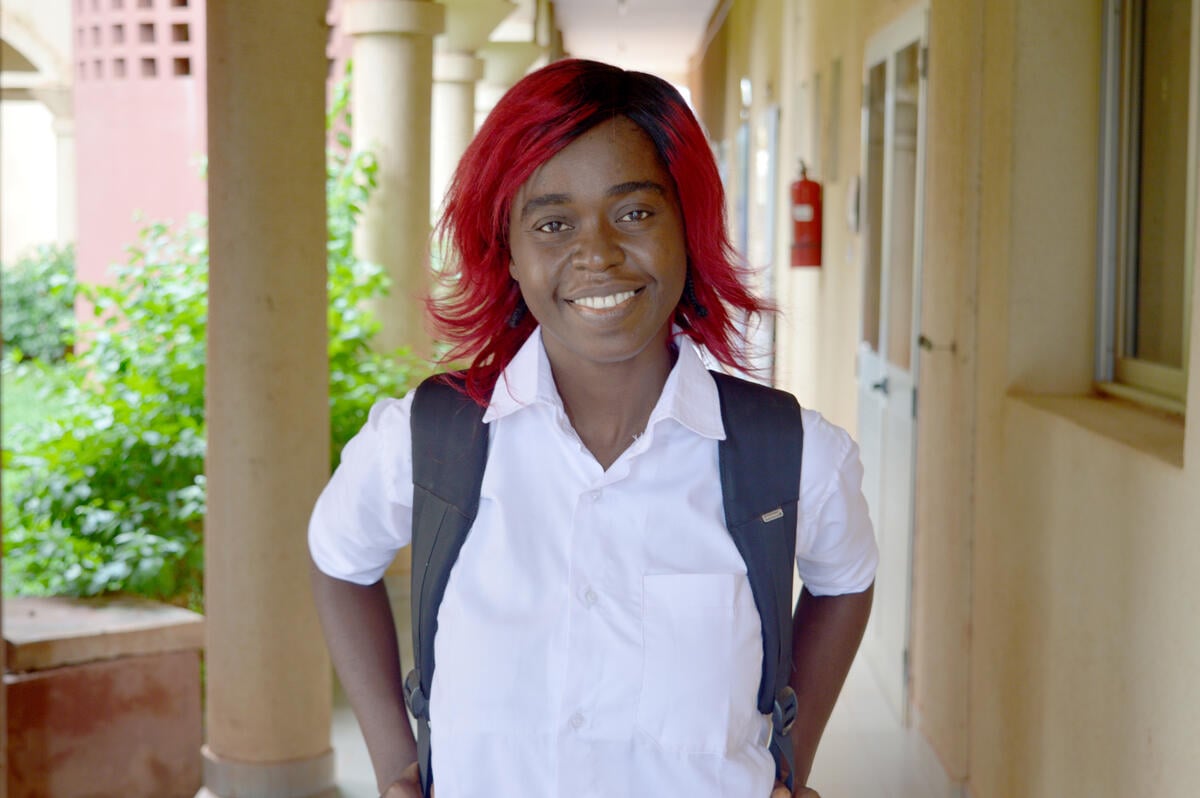UNHCR strongly condemns expulsion of Rwandan refugees from Gabon
UNHCR strongly condemns expulsion of Rwandan refugees from Gabon
The United Nations High Commissioner for Refugees today strongly condemned the expulsion of eight recognized refugees in a predawn military operation from Gabon that returned a total of at least 168 Rwandans to their country.
The refugees were kept overnight inside two military aircraft that transported them just before midnight from Franceville in Gabon to the Rwandan capital, Kigali.
After being allowed to disembark, at least 45 of the Rwandans, mostly women and children, were separated from the others. They were taken for registration as normal returnees. Seven of the eight UNHCR recognized refugees were among this group. The eighth, a Burundi, is still missing. The rest, mostly men, were handcuffed and taken to an undisclosed destination. UNHCR is collaborating with the International Committee of the Red Cross to locate them.
"We strongly condemn the Gabonese government's action in forcing these eight back," High Commissioner Sadako Ogata said. "Such conduct by Gabon, which is a signatory to international conventions on the treatment of refugees, is a flagrant violation of the most basic human rights and humanitarian principles."
The High Commissioner had issued a personal plea to the Gabonese government not to expel the 168 Rwandans before the completion of crucial screening procedures started by UNHCR last week and interviews conducted by the International Criminal Tribunal for Rwanda.
The 168 Rwandans were among 1,300 who entered Gabon last month after trekking for months across the equatorial forest of the former Zaire and later fleeing fierce fighting in Congo-Brazzaville. The others had already returned voluntarily to Kigali.
The eight refugees found to merit international protection included a 23-year-old woman from Rwanda's south-west prefecture of Gitarama. She had fled her homeland in July 1994 following the genocide that left more than 500,000 people dead. She returned later that year from former Zaire only to witness the murder of her parents and six other family members when gunmen attacked their house at night.
She told UNHCR protection officers that she managed to survive only by lying among the corpses of her family, pretending to be dead. The protection officers describe her as a delightful young woman, who had managed to put her traumatic past behind her and was looking forward to a new life with her 14-month-old baby.
Mrs. Ogata deplored the way in which the expulsion from Gabon was carried out. "There are several thousand Rwandans scattered in countries across central Africa. It is vital that asylum countries allow us time to separate the innocent who deserve protection. These people need our help," she said.







